Succession planning is a vital process for all departments within a school district. It involves identifying and developing employees who have the potential to fill key leadership positions in the future. By investing in the development of employees, school districts can ensure a smooth transition of leadership and maintain continuity in their operations.
The South Colonie Central School District, located in Upstate New York, effectively managed the transition of their Director of Transportation. Here’s how they did it.

Associate Principal
Colonie Central High School
Please tell our readers a bit about your pupil transportation journey.
Brian Sim: I started my transportation journey back in 2010 where I worked for the East Coast Railroad Services. I was a train dispatcher for approximately seven years where not only did we move goods but also Amtrak trains carrying passengers; both of which had to be done in a safe and efficient manner.
In 2018, I was hired by the South Colonie School District as a routing specialist; I held that role for about a year and then became the Assistant Director of Transportation followed by the Director of Transportation after longtime Director Peter Tunny retired in 2023.
Now, I serve as the Director for a district that transports approximately 5,000 students daily. We transport for the district and to private and parochial schools within the Capital Region.
Melissa Judge: I have been at South Colonie for 17 years. A majority of my career at the district was spent

Director of Transportation
South Colonie Central School District
as an English teacher, it was in 2022 that I became an Associate Principal at the high school. Shortly after I started my administrative journey, I realized just how crucial transportation was to the daily building routine and to the success of our students. Because frankly, without getting to the school, they cannot be successful.
Student transportation is what connects many of our students to receiving their education.
I believe that student transportation is essential; we are lucky to have some of the most accommodating, responsive, and understanding individuals running the department which helps streamline the process of the daily needs brought to them by administrators. They understand that what seems ordinary to those who witness the yellow bus on the roads makes a huge difference in the life of students.
Through working with our transportation department, I understand the value that they bring to the district and appreciate their willingness to be part of the team that wants our students to be safe and successful.
Pete Tunny: I’ve often said that school transportation is one of the best fields anyone can ever back into or stumble upon. And the reason I say that is because if you were to go through any high school and ask any student what they want to do when they’ve completed their education, I doubt anyone would say they want

Director of Transportation – Retired
South Colonie Central School District
to be a transportation director. That was certainly the case with me.
The journey for me began when I was a student over at Siena College in Loudonville, New York; at the same time, I was volunteering my time at a local fire department. Due to an odd schedule with breaks between my classes, I had free time during the day. A seasoned member of the fire department suggested I drive a school bus for a local district that was looking for substitute drivers. He noted that “my schedule would be perfect to accommodate their needs and kill time in between my classes.” I took his advice and began driving a school bus for the South Colonie School District and worked my way up the ranks from driver to trainer to assistant director to finally director, a position I would later retire from. I had no intentions of going into the school transportation industry but I’m glad I did; it was a very rewarding career.
Can you tell us about the succession plan process?
Judge: From my perspective, the process felt seamless.
Pete was someone I’d known and worked with for a while; district leaders always had wonderful things to say about how Pete would handle his department efficiently with safety as a top priority. Pete would be the main transportation point person at meetings, he was a familiar face at the table, and then he introduced us to Brian. Pete would allow Brian to participate in leadership meetings and slowly Brian became the go to person. The plan to go from Pete to Brian felt natural because of the way that Pete acclimated Brian to the work – a straight forward, team approach where the pre-work paid off. In addition, their personalities and how they work are similar. Brian cares, just like Pete did and that makes all the difference.
The plan to go from Pete to Brian felt natural because of the way that Pete acclimated Brian to the work – a straight forward, team approach where the pre-work paid off.
– Melissa Judge
Tunny: As Brian stated earlier, when he was hired, he was hired as a routing specialist, but during that process, I knew that both of my assistants and I were planning on retirement within the next five years. So, while we were hiring a routing specialist, we were really looking for someone who had potential to grow into the operation. We were looking for our next Transportation Director, therefore, the interview process really homed in on communication skills, solid understanding of transportation, and the capacity to be a leader; Brian had all of it. We were confident then that he would be a great candidate to take over transportation.
Sim: I did not know of Pete’s retirement intentions or timeline; I was interviewing to be a routing specialist, but I did have the desire to take on more responsibilities and an increased workload. I would frequently ask Pete and the assistant director at the time to trust me with new tasks and work hard to prove to them just how capable I was. When Pete made me aware of his plan to retire, I could see that becoming director was a reachable goal. At this time, Pete allowed me to shadow him; he would answer all my questions, and he provided me with valuable insights on what it meant to lead a department. He always took time out of this busy day for me, and for that, I am truly grateful.
The lesson learned – the person who is next in line will always show themselves; as leaders, it is our responsibility to pay attention.”
– Pete Tunny
Please highlight any specific lessons learned during the leadership transition.
Tunny: I learned what a great leader Brian was (and is). The leadership transition took place amid the pandemic; it was Brian who we trusted to make sure our buses were delivering food to students in need. He took on this task with little direction (because of the unprecedented challenge presented) and rose to the occasion. Such much so, that when we came back to school in the fall of 2020 and had to reduce our capacity of buses, incorporate seating charts, and contact trace, it was Brian who took on much of the responsibility to get us through those times. If he did not understand something or know how to move forward with a specific task, he would use critical thinking to figure out what to do. It was during the pandemic that it became increasingly evident that Brian would be the guy; from that time on, we moved forward in that direction by voicing our support of Brian to school leadership. The lesson learned – the person who is next in line will always show themselves; as leaders, it is our responsibility to pay attention.
Judge: I feel like the way the transportation succession plan we’ve done is a model for succession plans that we could utilize in our building in any capacity. As I stated, Brian became the point person through collaboration and clear communication. So, for me, the biggest lesson learned was showing a united front. By doing this, it removed any apprehension regarding the leadership transition.
Sim: The major lesson I learned from all this is to make sure you take your time and build a strong team around you. It was Pete who allowed me, as assistant director, to be part of the hiring process of a head mechanic and a routing specialist. I was able to learn from a seasoned leader how to interview and what to look for. After Pete retired, I hired three office staff with the mindset of keeping the team first, positive attitude culture that I had grown accustomed to.
We want people to want to come to work, to enjoy their jobs so they can perform at a high level. High level performance is so important when our job is to get students to and from school safely.
I would frequently ask Pete and the assistant director at the time to trust me with new tasks and work hard to prove to them just how capable I was. When Pete made me aware of his plan to retire, I could see that becoming director was a reachable goal.”
– Brian Sim
What advice would you offer our readers, and to district leaders focused on succession plans?
Judge: From an administrative standpoint, learning a new role is hard so I would say to be flexible, friendly, receptive, communicative but most importantly to understand the challenges that can arise in a building full of students. If you are a new or veteran leader in a district should not matter – you should always answer calls or text messages because most needs are immediate and important. Every time I had to interact with transportation; I was and am met with a can-do attitude. It is often asked “what do you need?” and if the need can be met, it is. If for some reason a need cannot be met, it is explained why, and an alternative solution is given.
How Pete and Brian have interacted with me, and others, has made a huge difference in the building.
Tunny: Look for people that have the potential for growth. You may be interviewing for a certain key position but always look to the future. Can you visualize the person in front of you moving forward and taking on greater responsibility? Do not just fill an immediate need, think long term.
Sim: Allow me to piggyback off my last answer – focus on a team culture. In my opinion, it’s always important to make time to recognize your team, make sure that your team knows that you appreciate them. And when I say team, it’s not just the team in the transportation office, it’s like Melissa, it’s other administrators in the district, and the teachers.
A person who feels genuinely appreciated will always do more than what is expected, in my opinion. A simple, “Great job,” or “Keep up the good work,” goes a long way. And Pete was always a great ambassador for that kind of culture. He always came in with a smile on his face. I don’t think he ever came in in a bad mood or having a bad day, even though everybody does have those days, but Pete definitely did not do that. And he kind of taught me that, come in with a smile and greet everybody the way you would want to be greeted.
How would you describe your leadership style?
Sim: I learned from my father, a retired police officer, at a young age to always lead by example. I focus on the first guy in, last guy out approach because it is hard work that pays off. Take pride in your work and commit to what needs to be done.
Also, do not micromanage – trust in your team and coworkers. It’s a simple approach with a big payoff.
Tunny: I was a collaborative leader who gave my team the autonomy they needed to get the work done. It was my responsibility to set the tone, expectations, and provide the necessary tools but after that – letting go and trusting the team around you was the most important.
That and have an open door; always be willing to listen and accept an alternate approach/way of thinking.
Judge: One of the mantras that I like to go by is, “seek to understand.” That mantra guides my leadership approach.
When I am speaking with others in our building, I strive to listen and garner a keen sense of what is needed and/or what is being asked. As Brian so eloquently stated, our small interactions have a significant impact. I work hard to remember that daily.


